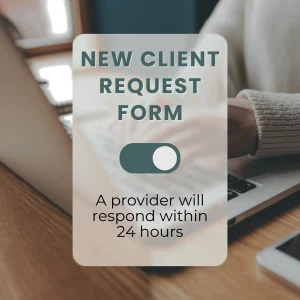
Empower Working Moms: Shifting from Burnout to Balance
Working moms have is tough. Moms often do the most housework and take care of the kids, besides their jobs. It’s hard to manage everything and sometimes feels impossible, causing a lot of stress. Worrying about whether people think they can count on them adds to the stress. When moms have to miss work to look after their sick kids, take them to the doctor, or even take a day off for themselves, it’s hard to keep working smoothly. Many moms feel torn between working and staying home, feeling guilty and anxious either way.
Workplace Culture for working moms
Jobs aren’t easy to come by, so we need moms to work. But how can we make them want to stay in their jobs after having a baby? Working moms aren’t high maintenance, and there a few small things employers can do to make it more possible & enjoyable for working moms.
More Time for Family Leave
A good first step is giving longer paid time off for new parents. In the US, some companies give new moms 12 weeks off. However, 23% of moms go back to work just two weeks after having a baby because there isn’t enough paid leave. Countries with longer paid leave see more moms returning to work. Giving moms time to heal and bond with their baby is good for their mental health.
Help with Childcare Costs
Daycare costs have gone up a lot because of the pandemic. So, many moms quit their jobs to look after their kids and save money. Helping with childcare costs can keep moms in the workforce. This help can be monthly payments or having the employer pay directly for childcare. Another idea is having free childcare at work. This can ease the financial burden on working moms and help their mental health.
Working Moms Need Flexibility
Thanks to working online, moms can have more control over their schedules. This means they can do things like take their kids to school or go to appointments without stressing about work. This kind of flexibility can make the day less stressful. Companies that offer flexible schedules see happier employees.
Creating a Supportive Work Space
If moms are made to feel understood and trusted, they will feel valued. Knowing when they’re trying too hard can help moms avoid feeling worn out. This tiredness, called burnout, hits working moms hard. It comes from feeling too stressed for too long. Signs include not wanting to engage, feeling very tired, missing work, and getting upset easily. Feeling stressed and tired while trying to do everything well, especially after having a baby, is really hard.
"Whenever you see me somewhere succeeding in one area of my life, that almost certainly means I am failing in another area of my life... If I am killing it on a Scandal script for work, I am probably missing bath and story time at home. If I am at home sewing my kids’ Halloween costumes, I’m probably blowing off a rewrite I was supposed to turn in...."
"If I am succeeding at one, I am inevitably failing at the other. That is the tradeoff. That is the Faustian bargain one makes with the devil that comes with being a powerful working woman who is also a powerful mother."-Shonda Rhimes, Greys Anatomy, Scandal
Working Moms: It's Time for Change
Let’s not keep quiet about needing to take care of our mental health. With more awareness and the right tools, we can break the stereotype that moms have to be perfect. And when someone asks how you manage to do everything, just smile and say you don’t, but you have something that helps a lot.
Know Your Value
Realizing your own worth means accepting your path, whether it’s focused on your career, family, or both. Being true to yourself sets a powerful example and challenges old stereotypes.
Set Realistic Goals
Trying to do everything perfectly is impossible. Excellence in professional life, alongside being a nurturing mother, a supportive partner, and a reliable friend, while also maintaining personal health, is a balancing act that demands choices. Acceptance of this reality fosters a healthier perspective on life, where perfection is seen for what it truly is—an unattainable mirage. Recognize your current priorities and allow yourself to focus on what matters most at the moment.
Working Moms can say 'No'
You can’t do everything or agree to everything. Finding balance means saying no to things that don’t match your priorities. Concentrate on what’s important and let go of the rest. It’s important to know your value and set boundaries to avoid doing too much or dealing with negative influences. Saying no might be tough at first, but it’s better than wearing yourself out for a version of success that doesn’t feel real.
Seeking Help Is a Form of Self-Respect
There’s strength and authenticity in acknowledging that you need help so that you can keep doing all the things without saying throwing in the towel all together. Mom groups and postpartum groups are great ways to link with other people in similar situations. Working moms don’t need to do it all alone- and if you need more support to create a balanced life, reach out to us today!
Are you a working mom ready to create a more balanced lifestyle while still killin’ it at work and home?
FAQ's About Therapy in New Jersey
How do I get started as a new client?
New Clients can reach out to us directly via call, text or email here:
Or, you can complete a new client form and we’ll reach out to you within 24 hours here:
What is your cancellation policy?
We ask that clients provide at least 24 hours notice in the event that they need to cancel to avoid the 50% cancellation fee. we understand that life happens and do our best to be flexible & reschedule.
Does my insurance cover my visits?
We provide”Courtesy Billing” for clients who are using the Out-of-network insurance benefits.
Our Insurance Page shares a small blurb about Why We Left Insurance Panels
Do you offer traditional talk therapy?
of course! though we have some unconventional therapy approaches, we are rooted in evidenced based practices. Talk therapy is a major player in the therapy room! See What we Treat and Integrative Services for more information
Is Online Therapy As Effective As In-Person Therapy?
Online therapy is essentially face-to-face counseling, just conducted remotely. Studies show that teletherapy is as effective as traditional counseling. Professional organizations and state governments recognize its benefits and have set regulations for it. However, like any therapy, its success in achieving your goals isn’t guaranteed. It’s important to discuss with your therapist whether teletherapy is working for you.
Can I Change Therapists If I'm Not Happy?
Yes, you can switch therapists to another provider within the practice, or we can provide you a referral if preferred. We want to ensure that your time and effort are well spent, and that you are getting the relief you need, that’s why we work collaboratively with each other in the practice, as well as outside therapists who we know and trust.
How Do I Know If Therapy Is Helping?
You should feel like you’re making progress. Signs it’s working include:
Feeling comfortable talking to your therapist
Your therapist respects boundaries
You’re moving towards your goals
You feel listened to
You’re doing better in life
Your self-esteem is getting better
Is Online Therapy Easy to Use for Non-Tech-Savvy People?
Yes, it’s pretty simple to access sessions. You’ll need basic internet skills, such as opening and visiting the patient link sent to you via email. It’s similar to video chatting like Facetime or Zoom. We can also walk you through it on the phone the first time to ensure a strong connection
What Questions Should I Ask My New Therapist?
Feel free to ask anything. Some good questions are:
- How often will we meet?
- What do you specialize in?
- What experience do you have with my issue?
- What outcomes can I expect?
- How will I know I’m progressing?
- How long do you usually work with clients?
- How will we set my treatment goals?
How Should I Prepare for My First Session?
Showing up is all that you need to do! But if you really want to get the most out of session, it could help to take some time to think about what you want from therapy. It helps to write down your goals, questions you have or things that you feel are important to share.
What is the difference between associate therapists & fully licensed therapists?
Our Qualifications:
Our founder, Rebecca Sidoti, is a highly qualified, state-licensed therapist and supervisor with extensive training in anxiety related disorders and innovative treatment such as Ketamine Therapy. Mind by Design Counseling adheres to standards set by the our governing counseling boards.
To see each providers credentials, training and licenses, visit our “Meet the Therapists” Page to learn more.
- LAC/LSW are therapists who may practice clinical work under the supervision of a fully licensed therapist.
- LPC/LCSW are therapists who have completed the necessary clinical hours post-graduation under supervision and can practice clinical work independently.
What Geographic Areas Are Served?
Currently, we serve clients in New Jersey and are expanding to other states as telehealth laws evolve. While telehealth offers the convenience of attending sessions from anywhere, state laws require clients to be in-state during their session.
Is Virtual Counseling Suitable for Everyone?
Online therapy might not be as effective for individuals with chronic suicidal thoughts, severe trauma, significant mental health history, or those recently in intensive care. Such cases often benefit more from traditional, in-person counseling. We’ll help you decide if our online services are right for you during your intake and evaluation.
What Equipment is Needed for Online Therapy?
To join a session, log in using the credentials we provide. No downloads are needed. Our platform, compatible with both individual and group sessions, requires:
A computer or mobile device with a webcam and internet access.
We’ll help you test your setup before your first appointment to ensure a reliable connection. iOS users should use the Safari browser for mobile and tablet sessions.
What Questions Will Therapists Ask Me?
It depends on your goals. Expect questions about your thoughts, feelings, relationships, work, school, and health. They’ll ask to understand your therapy goals.
How Do You Keep Client Information Secure?
Security and Confidentiality of Sessions:
Your privacy is crucial to us. We use TherapyNotes, a HIPAA-compliant platform, ensuring secure and confidential teletherapy sessions. This platform’s security features include encrypted video connections, secure data transfers, and encrypted databases, ensuring your information is safe at all times.
What is VRT used for?
we use VRT to support Exposure Therapy, a long standing traditional therapy modality to treat phobias, anxiety and stress. we send a headset directly to your home so you can access VRT from anywhere.
VRT not only helps with exposure therapy for phobias, but is great for ADHD, mindfulness, PTSD and social anxiety.

